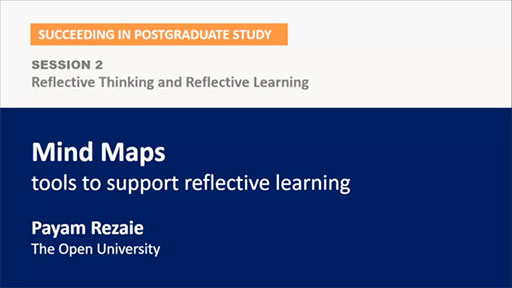6.2 Mind maps
Mind maps are also known as concept maps or ‘spider’ diagrams. These and other visual representations involving diagrams, sketches, cartoons and the use of colour, are useful creative tools that help to structure, categorise and make connections between ideas. They steer away from ‘linear’ thinking, provide you with an overview of key concepts and their connections, and help reflective learning become visually engaging, dynamic and memorable. Mind maps are also useful tools for structuring your thoughts for an assignment, and for planning and drafting essays, reports, projects and dissertations. They will help to motivate you, and get your academic writing off to a good start. You can use this technique to relate relevant ideas and information from study materials and other resources to each other as you study, or to summarise and reflect on your knowledge and understanding, and research on a particular topic at the end of a block or unit of study. Your mind map will grow and evolve to reflect your own learning, as you make progress with your studies. View this brief presentation to learn more about this technique.

Transcript: Session 2, slidecast 1: tools for reflective learning – mind maps
Pause briefly here to reflect on your learning by completing Activity 2 below.
Activity 2 Active reflection
Consider the following questions:
- What has been the most useful thing that you have learned so far from Session 2?
- What one question remains uppermost in your mind, and why?
- In what way is what you have learned in this session relevant to your personal life or professional practice?
